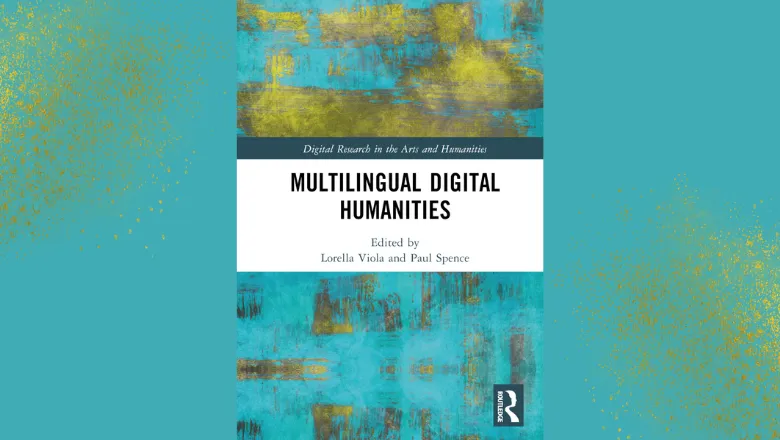Multilingualism is a major issue in a world increasingly mediated by digital culture and infrastructure, which is, in turn, dominated by highly resourced languages, in particular English. Some claim that language technologies will overcome linguistic diversity in digital spaces, but there is no evidence to support this view at present, and the authors in this volume set out the challenges for making digital research in the humanities and social sciences more linguistically inclusive. This book challenges a tendency in some quarters to advocate for technopositivist ‘solutions’ and instead proposes an integrated approach which takes on a wider cultural frame in tracing the opportunities and barriers to multilingualism in existing models, tools, infrastructures and interfaces.
Paul Spence, Reader in Digital Humanities
21 February 2024
New book reveals the impact of monolingualism on digital practices
‘Multilingual Digital Humanities’ explores the impact of monolingualism on digital practices in the humanities and social sciences.

A new collection on 'Multilingual Digital Humanities', co-edited by Paul Spence, Reader in Digital Humanities, and Lorella Viola, Researcher in Linguistics and Digital Humanities at the University of Luxembourg, has been published by Routledge as part of the Digital Research in the Arts and Humanities series at the end of 2023.
The book was inspired by the recent growth in multilingual initiatives in digital humanities which explore the intersection of languages, culture and digital mediation. Addressing language technologies, documentation and international language-based infrastructure, the collection aims to bring together linguistics-focused research with cultural criticism.

The collection is structurally divided into four parts. Each part explores multilingual and multicultural theory and practice, pedagogy, language models, as well as methods and infrastructure. The book features 13 diverse case studies in a range of languages, including Arabic, French, Russian, Portuguese, Italian, German, Spanish, Bengali, Hindi, Malayalam, and Tamil. 28 authors based in 12 different countries contributed to the collection.
'We hope that the book will increase awareness regarding geolinguistic diversity within the digital humanities, and within academia more broadly,' says Paul Spence. 'The volume brings together quite disparate fields – from linguistics to cultural studies – working in numerous areas, including language technologies, digital pedagogy, language education, cultural computation, AI, linguistic justice and language documentation – for a dialogue on what kind of digital research infrastructure we want, and what kind of knowledge that will make possible.'

